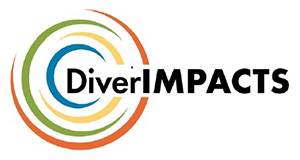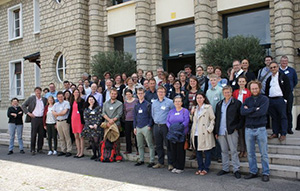
Acronym : DiverIMPACTS
Code : H2020-RUR-2016-2 (727482)
Contract Period : 01/06/2017 - 31/05/2022
Project Webpage : http://www.diverimpacts.net/
Main Funder : EU Horizon 2020
ORC Staff Contact : Katie Bliss

Crop diversification systems for the delivery of food, feed, industrial products and ecosystems services – from farm benefits to value-chain organisation.
The overall goal of DiverIMPACTS is to achieve the full potential of diversification of cropping systems for improved productivity, delivery of ecosystem services and resource-efficient and sustainable value chains by:
DiverIMPACTS will build on existing experiences of crop diversification by networking and expanding 10 existing field experiments to quantify impacts of crop diversification and by accompanying 25 multi-actor case studies in their dynamic transition.
DiverIMPACTS will propose a range of technical and organisational innovations to remove lock-ins from farmers to consumers as well as strategies and recommendations to sustain crop diversification.
The consortium gathers a wide range of actors (farmers and farmer organisations, advisory services, cooperatives, logistic providers, scientists, industry, representatives of civil society and of rural areas).
Through a multi-actor approach, DiverIMPACTS will accompany and support innovation groups in their dynamic process to develop sustainable value chain systems characterised by a high level of crop diversification and new market products. The consortium involves pioneer actors of crop diversification and has strong experience in both the design and multicriteria assessment of innovative systems and the analysis of barriers that impede the transition towards sustainable diversified systems that contribute to the Rural Renaissance objectives.
ORC is leading work on ‘Strategies, methods and tools to sustain crop diversification all along the value chain’ (WP6), which will develop comprehensive and long-term strategies, recommendations and tools to promote the adoption of crop diversification within the current sociotechnical system. We will:
ORC is leading on the three UK case studies (WP2), looking at examples where crop diversification has been done successfully.
For each case study, an iterative co-innovation process, including already identified value chain actors beyond those involved as partners is implemented to:
ORC also has some involvement in ‘Transfer, dissemination and communication of the project outcomes’ (WP7) and ‘Consortium coordination and project management’ (WP8).
Read article in ORC Bulletin No.125 (Summer 2018) by Charlotte Bickler and Katie BlissDiversity from field to fork
A successful kick-off meeting was held on 7-9 June at INRA in Versailles, near Paris in France.
Bliss K, Bickler C, Villa A, Tippin L, Vieweger A, Meldrum J, Padel S, Pearce B, Lea M (2019) Getting out of the commodity trap: Enabling diversity through alternative food networks. In First European Conference on Crop Diversification. September 18-21, 2019 Budapest. Book of abstracts. 310-311.

The project has received funding from the European Union’s Horizon 2020 research and innovation programme under agreement No. 727482.